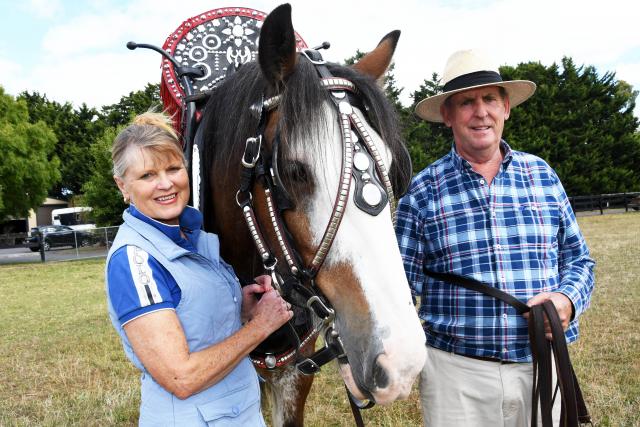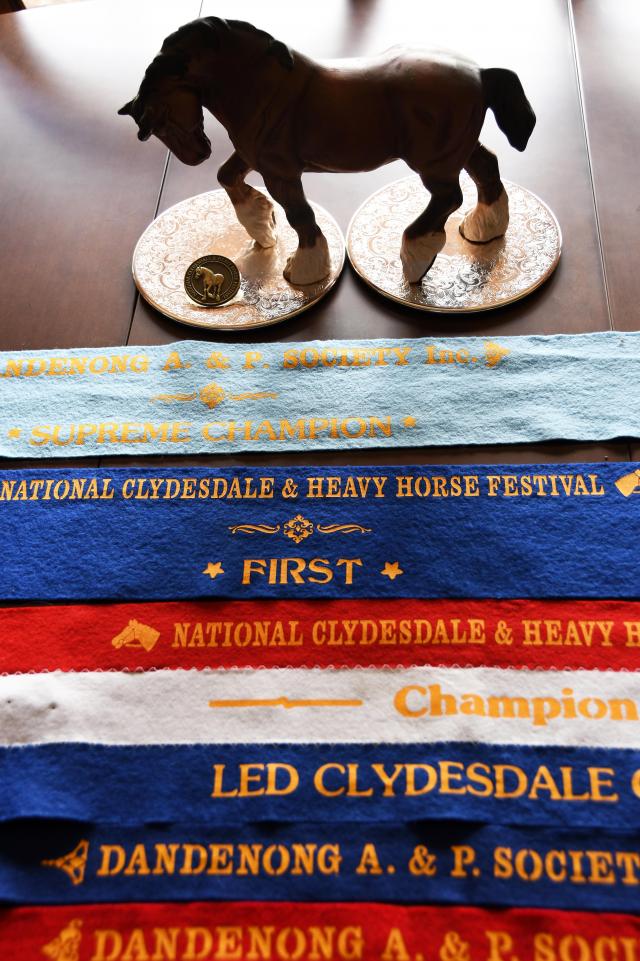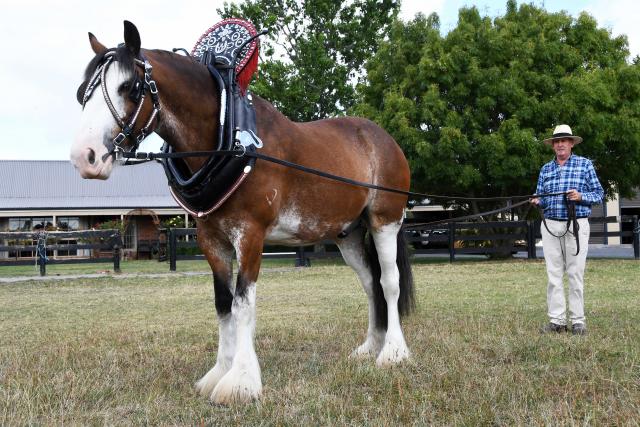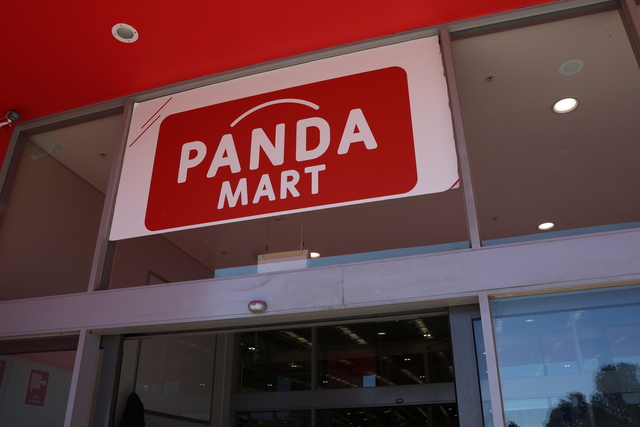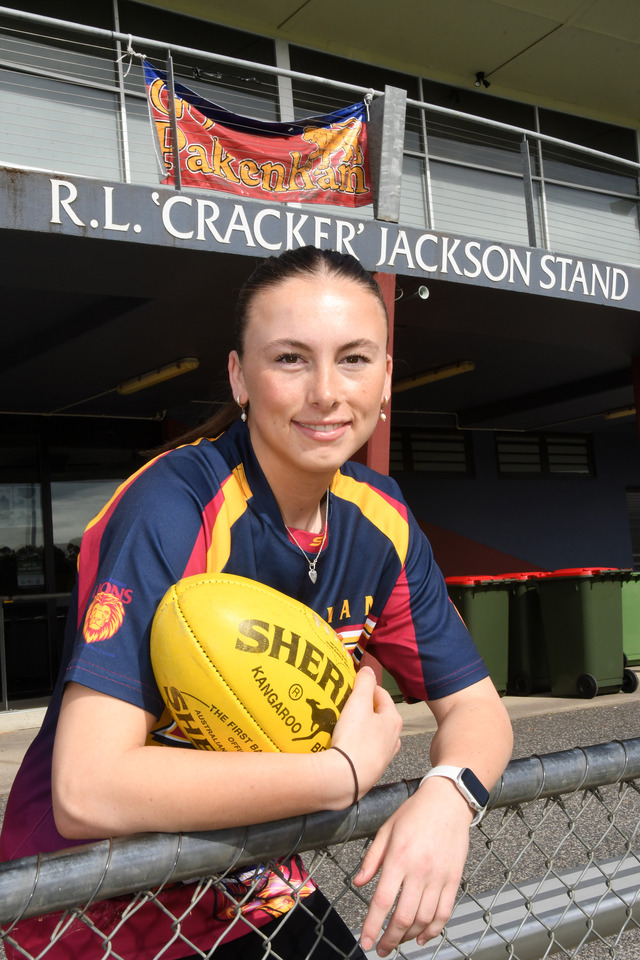Standing in the paddock of his Narre Warren South property, Peter Strafford describes the markers of a good Clydesdale horse.
A good shoulder, fine bone in their legs, silky ‘feather’ – the hair that cloaks their hooves – all form the unique make-up of the Scottish working horse, which are paraded each year at the Berwick Show’s Heavy Horse program.
A farrier by trade, Mr Strafford has had a long appreciation for both the Clydesdale, and the Berwick Show – entering his horses in the Akoonah Park competition for the last 40 years.
“Like they say, it’s the breed that built Australia, the Clydesdale horse, and that’s so true, they were the king of the road in their day,” he said.
He has high hopes for his current Clydesdale, Samarah Park Thomas, affectionately known by his stable name ‘Tom’, at the 2023 show, who is the reigning show champion for his division, having taken away the top ribbon at last year’s Berwick Show.
More recently, Tom was awarded champion led Clydesdale Gelding at the National Clydesdale and Heavy Horse Festival late last month.
It was the first time Mr Strafford had entered a Clydesdale in the Werribee event, usually sticking to agricultural shows on the East side of the state, from Dandenong and Berwick, to Pakenham, Warragul and even Sale.
Mr Strafford recalls the love affair beginning with hearing the ‘clip-clop clip-clop’ of the milkman’s horse down the streets of Hawthorn in the early 1960s.
“I’d always loved horses. When I was a young boy, in primary school, I’d hear ‘clip clop clip clop’- you can always hear the horses before you see them- and I’d get out of bed, climb out the window and I’d follow the milky and say ‘hey Mr, I can help you!’,” he recalled.
“He’d say ‘go home boy!’, but I’d say ‘no I can collect the empty bottles for you!’ and he gave up.
“I was a pest and I wouldn’t give up. That was my first interaction with working horses, I’m 68 years old now and I was all of six or seven then.”
About a decade later, at the age of 16, Mr Strafford would lead the renowned Carlton and United Breweries Clydesdales, which were used to transport barrels of beer, back to the forge, where they’d shoe the horses.
“When I was an apprentice farrier, everybody wanted to work in the racing industry.
“No one knew the milkman’s horse or the baker’s horse, but because I’d been involved with them from an early age, I loved them too,” he explained of his fondness for ‘Clydies’.
Wife Rhondda Strafford, an avid horse rider and show horse judge, has a similar love for the equine animal.
“We’ve both had a love affair with horses from when we were still at school, and then as adults and right through our lives,” Mr Strafford said.
“And the funny thing about it is that neither of us had parents that really knew anything about horses, for some reason we just loved them,” Mrs Strafford added.
“We get so excited just washing the horse and preparing the horse before a show,” Mr Strafford said.
Despite the dedication and passion of many, Mrs Strafford said the landscape of agricultural shows has shifted dramatically in recent years.
“To tell you the truth, we want to go to the shows because there’s not a lot of people going anymore. We want to keep it alive,” she said.
“It’s been very noticeable since all of the lockdowns that there’s been a lot of people that’ve just dropped out of showing…the Show societies have found it’s just too hard to get back into.
“We’re not young anymore, even we’re finding it hard and we’re some of the younger ones,” Mr Strafford added.
While the nature of agricultural shows shift and evolve, for people like Mr and Mrs Strafford, it is clear their love for the Clydesdale is one thing that will undoubtedly stand the test of time.
“We get so excited just washing the horse and preparing the horse,” Mr Strafford said
“When the judge says ‘youre the winner’ your heart goes pum pum pum pum pum…you can’t describe it.”

